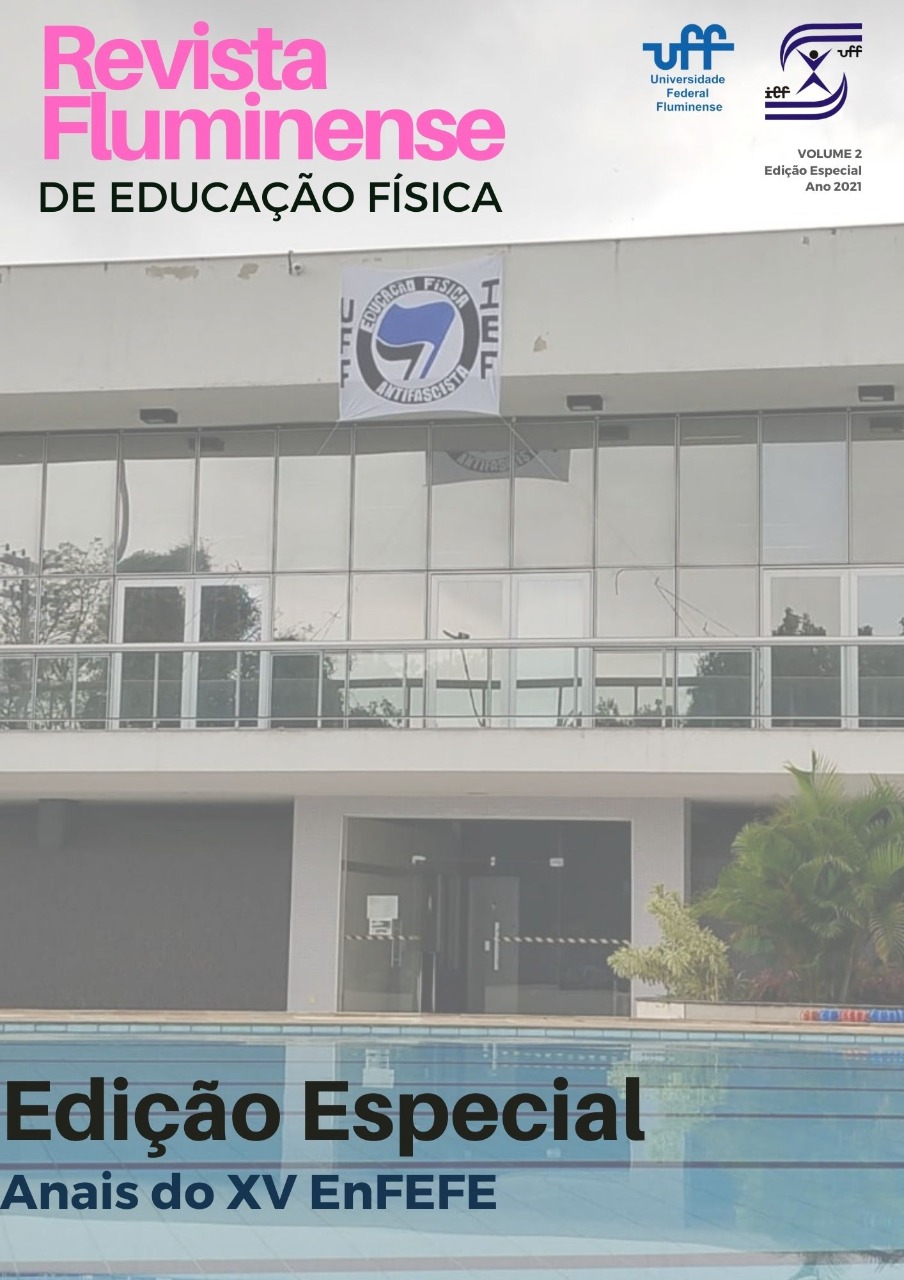Um OLHAR SOBRE AS DINÂMICAS NA ESCOLA DA PONTE:
PRÁTICAS PEDAGÓGICAS NO CURRÍCULO EM GERAL E EM ESPECÍFICO NA EDUCAÇÃO FÍSICA
Abstract
This work was constructed from my master’s dissertation, defended at the University of Porto, Portugal which aimed to investigate the pedagogical practices of the Escola da Ponte, namely the mechanisms of differentiation, as well as the practices of accountability and autonomy of students in the curriculum in general and in the area of Physical Education. Had as empirical universe the context of a Public School, specifically the School of Bridge, located in the municipality of Santo Tirso, district of Porto, Portugal. The study aimed to analyze the educational project "Make the Bridge", know the day to day of this school, its pedagogical and dynamic proposal in general and Physical Education in particular. The thematic analysis was materialized in three major themes: organization of pedagogical work; dynamics of work and pedagogical practices in Physical Education. The mechanisms of accountability, autonomy and differentiation are present in everyday school life. The student appears as the protagonist of his learning. Physical Education classes take place in a space of excellence, although divided with another school, São Tomé de Negrelos School, which in part influences the departure from the discipline of work logic integrated in the project "Make the Bridge". Palavras-chave: Bridge School. Pedagogical Practices. Autonomy. Physical Education
Downloads
Downloads
Published
Issue
Section
License

This work is licensed under a Creative Commons Attribution-NonCommercial-NoDerivatives 4.0 International License.
Autores mantêm os direitos autorais e concedem à Revista Fluminense de
Educação Física o direito de primeira publicação, o que permite o
compartilhamento do trabalho com reconhecimento da autoria e publicação
inicial nesta revista. Os dados, conceitos e opiniões apresentados nos
trabalhos, bem como a exatidão das referências documentais e bibliográficas,
são de inteira responsabilidade dos/as autores/as.
Autores têm permissão e são estimulados a publicar e distribuir seu trabalho
online (ex.: em repositórios institucionais ou na sua página pessoal) já que isso
pode gerar alterações produtivas, bem como aumentar o impacto e a citação
do trabalho publicado.
Em virtude de aparecerem nesta Revista de acesso público, os artigos são de
uso gratuito, com atribuições próprias, em aplicações educacionais e não-
comerciais.




